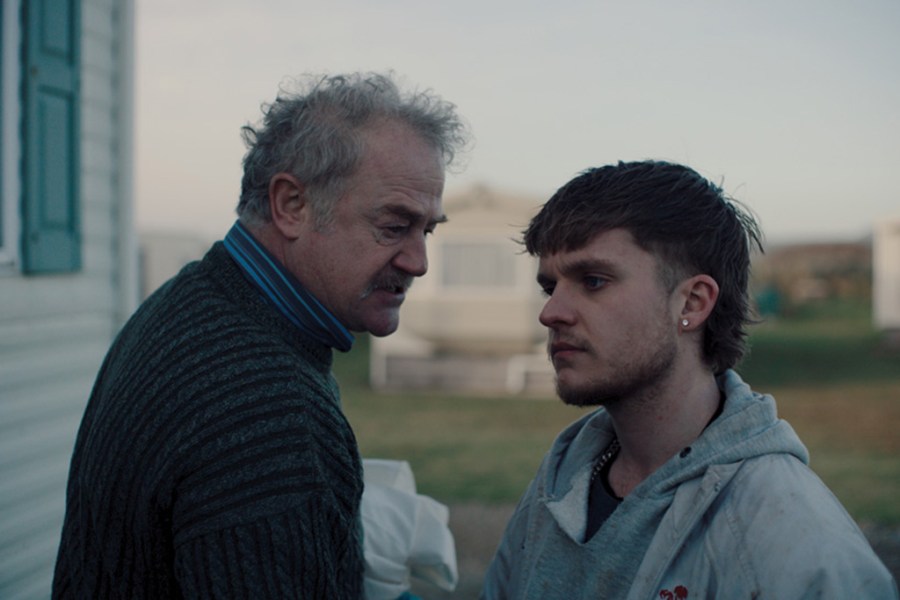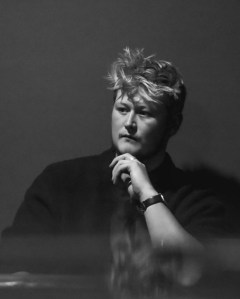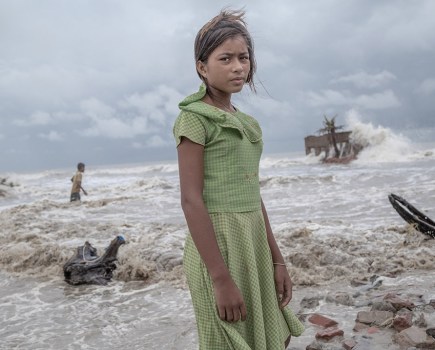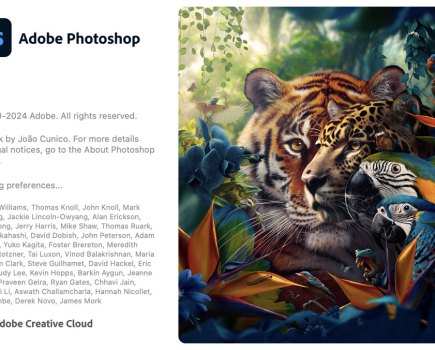We talk to the Sony Future Filmmaker Awards 2023 winner of the Fiction category Dan Thorburn on the process behind his short film ‘Salt Water Town’, on drawing cinematography inspiration from painting, advice for students and beginner videographers, as well as his favourite camera to take photos with.
‘Salt Water Town’s protagonist is Liam, a young man yearning to escape the small Welsh coastal town he grew up in. The film follows Liam’s desperate attempts to convince his father Glenn to leave with him after an inspection of the land the failing caravan park they run finds it to be worthless due to rising sea levels.
The six winners of the Sony Future Filmmaker Awards 2023, which celebrates work by creators and independent filmmakers around the world, were announced on 22 February 2023. Winners were rewarded with cash prizes, a range of Sony’s Digital Imaging equipment and a three-day industry immersion experience led by Sony Pictures executives. This awards competition notably had an environment category and awards for a competition open to short films exclusively shot on smartphones and the Sony Future Filmmaker Awards 2024 is currently open for entries.
How did it feel to have your film win the Sony Future Filmmaker Awards Fiction category?
Thorburn said that though the film had done well in festivals it had played in, winning wasn’t expected, ‘All the other films we were up against in the category were phenomenal, made by some really cool filmmakers… We thought because it’s such a regional piece and it’s so grounded in its regionality, in its kind of British and Welshness, that maybe that’s what wasn’t translating over to the US.’
Despite it coming as ‘a as a real shock’ Thorburn said, ‘It was just a super exciting process to go through and meet the amazing people at Sony. And I really enjoyed that award ceremony, which was a really cracking night.’
How was the writing, filming, editing process for Salt Water Town?
Thorburn said, ‘It was a story that kind of half fell into our lap and half was something that we (Thorburn and his co-writer Jack Sherratt) knew we wanted to tell. We were super interested in telling these intergenerational stories of the aggression of youth compared to that of older generations and the anger that a lot of young people in this country, especially in the regions, are feeling right now in terms of economic hardship.’
Thorburn and Sherratt were also keen to explore climate change which has been set up as a looming backdrop in the final piece. This was inspired by a news article about a town in North Wales struggling with rising sea levels and the sea walls no longer being able to be held up by government funding, resulting in land being decommissioned, including people’s homes and businesses.
They were also inspired by both of their childhoods growing up in Manchester and spending time at caravan parks in North Wales. Thorburn and Sherratt actually wrote the majority of the script in a caravan site in North Wales, saying that it ‘really helped us to kind of capture that really visceral space where the film is set.’
The production process was pushed back because of COVID and ‘there was a lot of extra pressure on us and with it being quite a big production involving a lot of moving parts with vehicles and horses and animals and VFX and SFX and smoke and fire and all these crazy things, it really felt like a production that was either going to make a huge mark and come together in a really smart way or could all kind of come crashing down. What gave me a lot of reassurance and felt like the kind of glue that really made me feel confident about the piece as we were making it was working with Owen Teale and Tom Glynn-Carney, the two primary cast members. They’re such well-versed actors and they both fully understood the role and their characters, and their chemistry was fantastic right from the offset.’
A lot of emphasis is often placed like on the opening scene of a film. Can you describe how you got the one in Salt Water Town?
‘The original opening scene for ‘Salt Water Town’ was completely different from what it is now. Looking back, me and Jack would both laugh and saying that it was kind of pretentious what we’d originally planned. The original opening was Owens’s character floating in just his underwear in the ocean. It was a bird’s eye shot looking down and they took a big exhale and sunk himself under the water, and then we opened into the motorbike stuff. For a long time we were like, this is exactly how we want to start it. It’s really arty, it’s really powerful.’
However, with pre-production taking six months due to COVID, Thorburn said he and Sherratt had time to reassess whether it really was how they wanted to open the film and if it was just a piece of art for the sake of it.
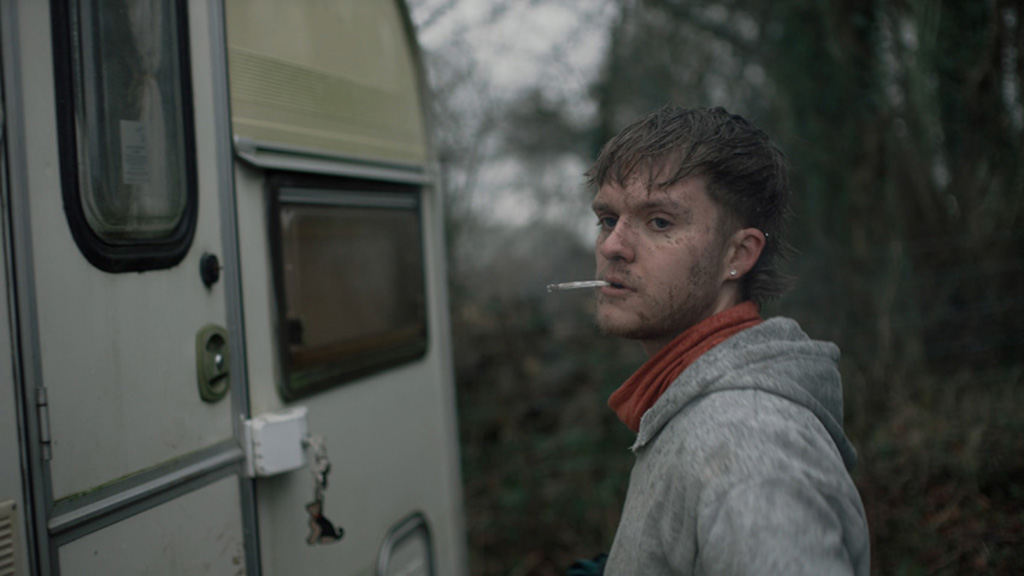
© Dan Thorburn, United Kingdom, Salt Water Town, Shortlist, Filmmaker, Fiction, Sony Future Filmmaker Awards 2023.
The scene was redrafted to the version that made it into the final cut of the film, in which we see Liam stealing petrol from someone else’s car while talking on the phone about opportunities for himself and his father. Thorburn feels like this scene works best as it connects the beginning of the film to the end and introduced the audience straight away to the character.
Speaking of art, you were originally studying to be a painter before changing to film. Does this influence how you think about the look of your film?
Thorburn said he always wanted to be a painter and initially studied Fine Art at the University of the Arts London before switching to film. ‘I’d never really played with film as a language or medium, but I had a tutor there who began to get me interested in the moving image and playing with found footage. I started making some pieces that way and that’s what really led me into using kind of a visual moving image as an art medium and I think from that, I kind of naturally found my place as a director and as a storyteller and a writer.’
Since then his background in fine art has shaped his filmmaking and Thorburn describes himself as a visual director and that this helps when working with cinematographers as well as co-writers.
One particular scene in ‘Salt Water Town’ in which Owen Teale, who plays Glenn, is sitting on a beach before laying on his side was inspired by a Robert Rauschenberg painting. The camera stays on him in a close-up shot before turning to the ocean which slowly but surely edges closer.
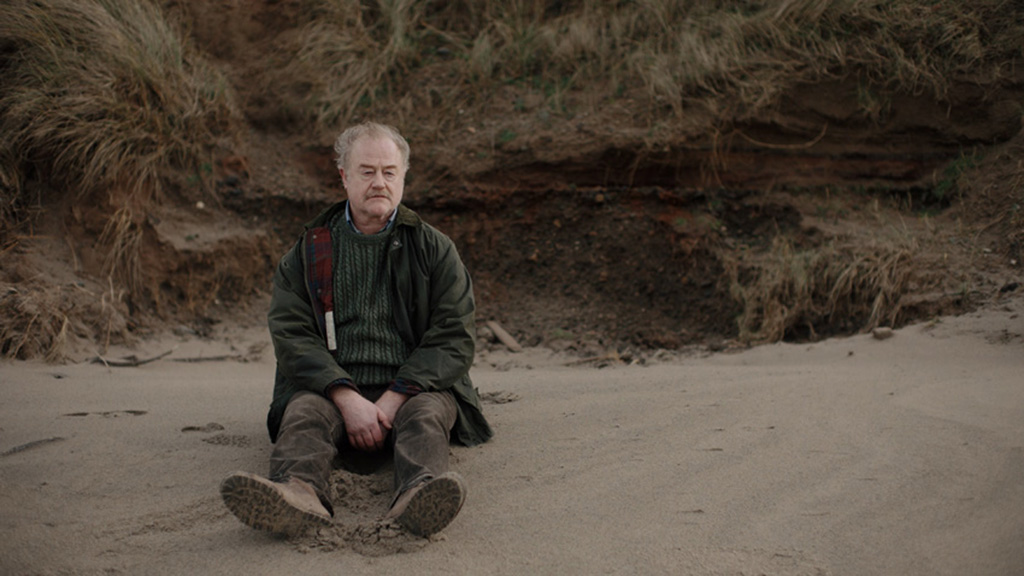
© Dan Thorburn, United Kingdom, Salt Water Town, Shortlist, Filmmaker, Fiction, Sony Future Filmmaker Awards 2023.
What advice do you have for student and beginner filmmakers?
‘The advice that everyone will always say, which is which is super true, is just go and make stuff. Start playing, use whatever you’ve got. We used to shoot stuff, not on our phones, but on really old DSLR’s, Canon 600Ds. It doesn’t matter about the quality, what matters is the collaboration in the filmmaking process, that’s the most important thing.’
‘Go out there and meet other people… I couldn’t have done anything I did without an amazing team surrounding me. I think that’s the first step you’ve got to do as a director, as a writer. Find a producer that you trust, find somebody who shares your creative vision. Find a DOP (Director of Photography) or a cinematographer with whom you can communicate with and you can learn to balance those ideas around with.’
‘That’s my big piece of advice, just get out there and start meeting other people and shoot whatever you can with whoever you can and you’ll only keep getting better. It’s a long process, but just enjoy it.’
You’ve been posting some photography on your Instagram, what camera do you use and what type of photos do you like to take?
‘At the minute I shoot on a Fujifilm X100V which I absolutely love to bits.’ Thorburn, who shoots a lot of landscape photography, says he particularly enjoys the film simulation settings. Before that he used to shoot on a Sony A6000.
What cameras do you use for filming?
Many of Thorburn’s films have been shot on ARRI Alexa Minis, which are compact movie cameras whose symmetrical design allows for filming upside-down and in portrait mode.
Thorburn is excited to use the Sony Venice FX-7 cameras he got from Sony after winning the Awards, possibly in his next project, ‘It’s a very simple piece of kit that we can pull out and run, especially in the kind of style that a lot of my work is in’.
What do you prefer for editing video?
Though many in the industry swear by Avid for video editing, Thorburn still prefers Adobe Premiere Pro, ‘It’s consumer but it’s easy to use and, it always felt kind of nice and simple. I know some people have problems with it, but I’ve always been pretty comfortable using that if I’m cutting myself… That’s what I was taught to cut on (at university), and if it was up to me, I’d still be cutting on that today.’
Watch Dan Thorburn’s ‘Salt Water Town’:
About Dan Thorburn:
Dan Thorburn is an award-winning writer and director from the North of England. Originally a painter, he studied at Central Saint Martins School of Art in London where he transitioned his practice into film. He has directed a range of successful dramas (Salt Water Town, Trucker’s Atlas), gaining recognition from festivals around the world, and received funding from the British Film Institute. Alongside his arthouse social realism work, his portfolio also expands to contemporary dance film. He currently has two feature films in development and is working as co-creator on a coming-of-age television drama.
See more of Dan’s work on his website.
This interview has been shortened for length and clarity.
Related content:
- Sony Future Filmmaker Awards 2024 open for entries!
- Sony Future Filmmaker Awards 2023 shortlist announced
Follow AP on Facebook, Twitter, Instagram, YouTube and TikTok.

